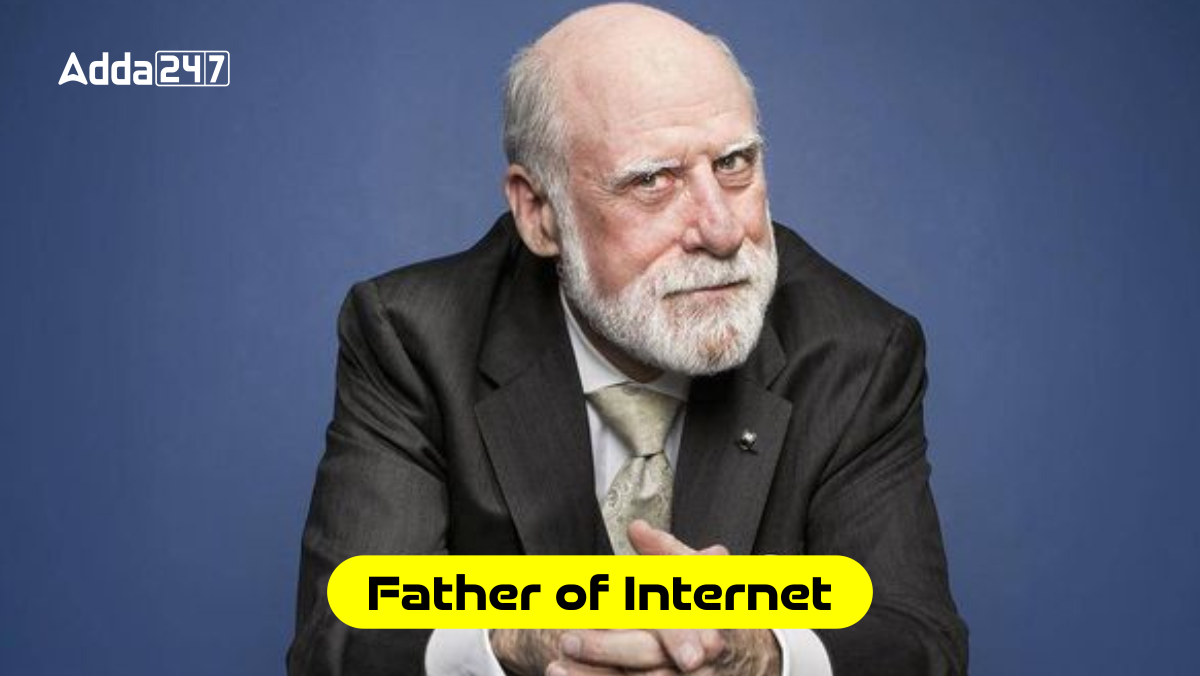The internet, an indispensable aspect of our daily existence, has evolved over several decades through a complex and collaborative endeavor. While ascribing the creation of the internet to a singular individual is unattainable, one prominent figure emerges as a crucial visionary and architect, commonly hailed as the “Father of the Internet.” Vint Cerf played a pivotal role in shaping the foundational protocols and structure that form the basis of the worldwide network.
Father of the Internet, Vint Cerf
Vint Cerf, born on 23rd June, 1943, embarked on his journey into the world of computer networking in the early 1970s. At that time, he joined the United States Department of Defence Advanced Research Projects Agency (DARPA) at the request of his colleague Robert E. Kahn. Together, they embarked on a mission to create a communication system that would connect computers regardless of their hardware configuration.
Cerf’s work, alongside Kahn, led to the development of the TCP/IP (Transmission Control Protocol/ Internet Protocol) protocols, which formed the bedrock of the internet’s communication framework. This achievement earned him the title of “Father of the Internet.”
Key Achievements of Vint Cerf
Vint Cerf’s contributions to the world of technology and the internet have been recognized with numerous awards and accolades, including:
- S. National Medal of Technology in 1997: Cerf’s pioneering work on the TCP/IP protocols was acknowledged with this prestigious award.
- ACM Alan M. Turing Award in 2004: He was honoured with the Turing Award, often regarded as the “Nobel Prize of Computing,” for his outstanding contributions to computer science.
- Presidential Medal of Freedom in 2005: The highest civilian honor in the United States was bestowed upon Cerf in recognition of his profound impact on the internet.
- Role at Google: Since 2005, Vint Cerf has served as Google’s Vice President and Chief Internet Evangelist, where he continues to play a significant role in shaping the company’s internet-related initiatives.
Beyond these accolades, Cerf has held influential positions, such as Chairman of the Board of ICANN (Internet Corporation for Assigned Names and Numbers) and Founding President of the Internet Society. His dedication to advancing internet technologies has had a lasting impact on the digital world.
The Collaborative Effort behind the Internet
It is important to note that while Vint Cerf is often celebrated as a key figure, the development of the internet was a collaborative effort involving many brilliant minds. Some notable contributions include:
- Leonard Kleinrock: He developed the theory of packet-switching, a fundamental concept for computer networking.
- Larry Roberts: Roberts designed the ARPANET, which laid the foundation for the internet.
- Raymond Tomlinson: Credited with sending the first email, Tomlinson revolutionized digital communication.
- Paul Mockapetris and John Postel: Their work on domain names simplified web addresses.
- Sir Berners-Lee: The inventor of HTML and the World Wide Web.
- Marc Andersen and Eric Bina: Created the first web browser, Mosaic.
The Birth of the Internet
The origins of the internet can be traced back to the post-World War II era when governments, corporations and universities began contracting private entities for research. The challenge lay in sharing information efficiently, leading to the development of ARPANET. ARPANET aimed to address resources sharing issues and with the introduction of TCP/IP, the internet as we know it began to take shape.
The Future of the Internet
Today, the internet is considered a human right and it continues to evolve at an astonishing pace. Technologies like the Internet of Things, cloud computing, artificial intelligence and 5G are redefining how we interact with the digital world. The journey that began with Vint Cerf’s pioneering work continues to shape our future, with the internet serving as a platform for innovation and connectivity on a global scale.
Find More General Studies News Here




 Which District of Uttar Pradesh is known...
Which District of Uttar Pradesh is known...
 Which Mountain is known as the Stone Sen...
Which Mountain is known as the Stone Sen...
 Brazil Creates History! Lucas Pinheiro B...
Brazil Creates History! Lucas Pinheiro B...








